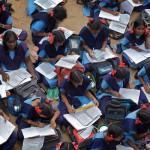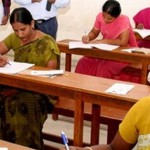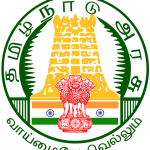
1. Which of the following Articles says that “when the state of emergency is in operation, the parliament can make laws on the state subject“?
A) Article 249 B) Article 250
C) Article 252 D) Article 253
Explanation : Ans : (B)
Article 250 says about the Power of Parliament to legislate with respect to any matter in the state list if a Proclamation of Emergency is in operation.
The laws become inoperative on the expiration of six months after the emergency has ceased to operate.
Here also, the Power of a state legislature to make laws on the same matter is not restricted. But, in case of repugnancy between a state law and a Parliamentary law, the latter is to prevail.
2. Investment in education is called
A) Human Capital B) Fiscal Capital
C) Money Capital D) Wage Capital
Explanation : Ans : (A)
Like other resources population also is a resource – a ‘human resource’. This is the positive side of a large population. When the existing ‘human resource’ is further developed by becoming more educated and healthy, we call it ‘human capital formation’ that adds to the productive power of the country just like ‘Physical capital formation’.
Investment in human capital (through education, training, medical care) yields a return just like investment in physical capital. This can be seen directly in the form of higher incomes earned because of higher productivity of the more educated or the better trained persons, as well as the higher productivity of healthier people.
For many decades in India, a large population has been considered a liability rather than an asset. But a large population need not be a burden for the economy.
It can be turned into a productive asset by investment in human capital (for example, by spending resources on education and health for all, training of industrial and agricultural workers in the use of modern technology, useful scientific researches and so on).
3. Karakatau volcano situated in which country?
A) Japan B) Italy
C) New Zealand D) Indonesia
Explanation : Ans : (D)
Karakatau is a caldera in the Sunda Strait between the islands of Java and Sumatra in the Indonesian province of Lampung. The name is also used for the surrounding volcanic island group (Krakatoa Archipelago) comprising four islands : two of which, Lang and Verlaten, are remnants of a previous volcanic edifice destroyed in eruptions long before the famous 1883 eruption; another, Rakata, is the remnant of much larger island destroyed in the 1883 eruption.
In 1927, a fourth island Anak Karakatau or “Child of Karakatau,” emerged from the caldera formed in 1883. There has been new eruptive activity since the late 20th century, with a large collapse causing a deadly tsunami in December 2018.
4. Which plant is an excellent example for autonomic movement of variation ?
A) Desmodium gyrans
B) Crocus sativus
C) Oxalis corniculata
D) Oxalis latifolia
Explanation : Ans : (A)
In Desmodium gyrans (Indian telegraph plant), the compound leaf shows three leaflets, one terminal large leaflet and two very small lateral opposite leaflets. The two lateral leaflets move up, move back and them move down and finally back to the original position showing rhythmic movement. Desmodium gyrans is called dancing plant. This plant was used by Indian Scientist Jagadish Chandra Bose for his experiment.
5. Who was the winner of the ‘Man Booker International’ prize 2018 ?
A) Faye D’ Souza B) Olga Tokarczuk
C) Ruskin Bond D) Dr. Kamalijit
Explanation : Ans : (B)
Man Booker International Prize :
The International Booker Prize, (formerly known as the Man Booker International Prize), is an international literary award hosted in the United Kingdom. The introduction of the International Prize to complement the Man Booker Prize was announced in June 2004. Sponsored by the Man Group, until 2015 the award was given every two years to a living author of any nationality for a body of work published in English or generally available in English translation.
It rewarded one author’s “continued creativity, development and overall contribution to fiction on the world stage,” and was a recognition of the writer’s body of work rater then any one title.
Since 2016, the award has been given annually to a single book in English translation, with a £ 50,000 prize for the winning title, shared equally between author and translator.






